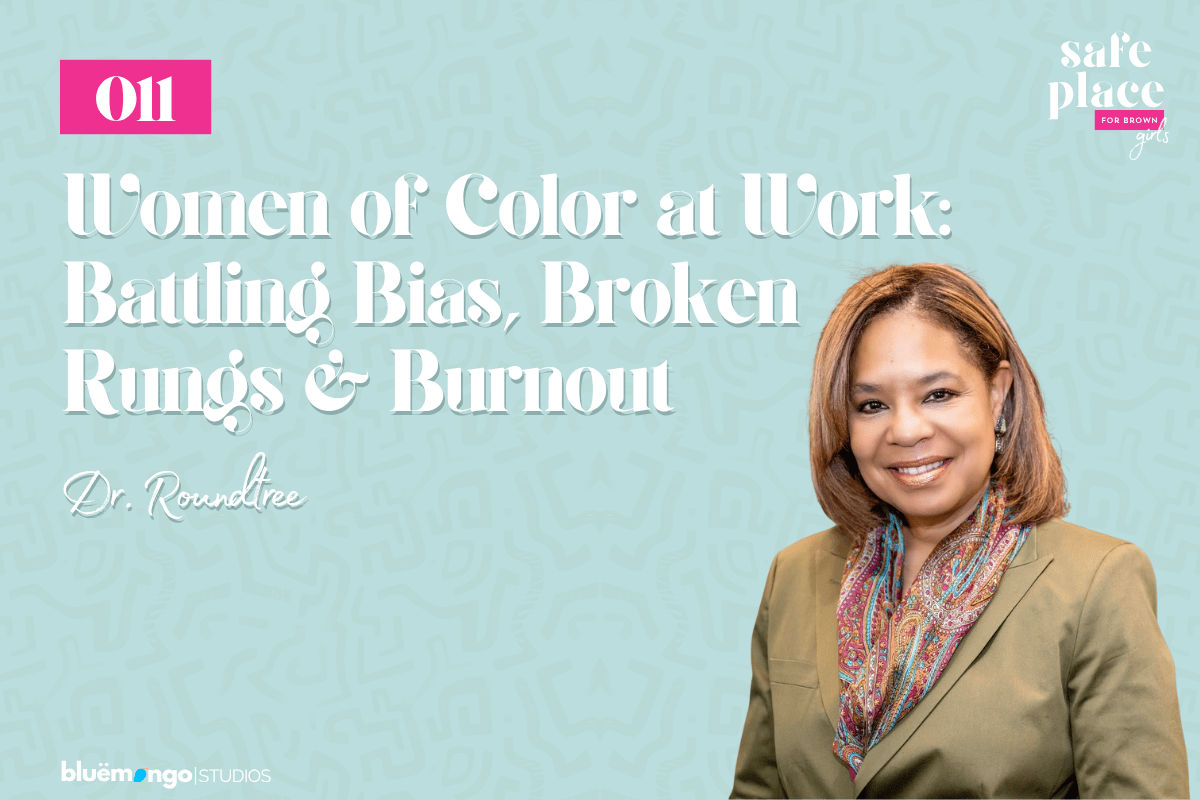Have you ever felt unseen, unheard, and underpaid at your job? These are often three common problems women of color face in the workplace.
In this episode, I invite Dr. Deeawn Roundtree, who is a leadership coach and management consultant. She joins me in this much-needed conversation on the improper treatment of Black and Brown women at work.
Shownotes
Welcome, Dr. Deeawn Roundtree
- Dr. Roundtree holds a dual doctorate in Business Administration and Ministry. She owns her own business that helps leaders step into their identity with strategy, clarity, and confidence.
- Today, she’s joining me to share her insight on why Black and Brown women face so much trouble in the workplace. She also provides empowering tips to help you navigate the workforce as a woman of color.
3 Common Issues for Women of Color in the Workplace
- There are three main challenges that Black and Brown women often face:
- Lack of representation and role models
- Microaggressions and implicit bias
- Pay inequity and double standards
Negative Effects of Underrepresented Women of Color on Work Culture
- Starting off, I share some statistics on the matter. Recent studies shows, Black women hold a mere 1.4% of c-suite roles, and Latina women are also significantly underrepresented in leadership.
- Dr. Roundtree shares how this underrepresentation affects the workplace environment, starting with her own personal experiences. From her view she says that Black and Brown women are often seen at work as:
- Undervalued
- Underutilized
- Subject to negative stereotypes
- Facing double jeopardy due to both race and gender
- Seeing how women of color are often judged harshly and held back because of bias, she designed a leadership program to help empower and teach women to handle the unique workforce challenges.
Imposter Syndrome
- Dr. Roundtree describes the all-too-common psychological phenomenon as an internal experience. She provides an example of being promoted to a CEO-level position but not feeling confident enough to perform the role.
- What causes Imposter Syndrome is based on how you see yourself due to external factors. It’s a superficial feeling you get when you believe you’re pretending to be more than you are.
Strategies to Become Visible at the Table
- To stop being unseen and unheard at the table, Dr. Roundtree advises that you first do whatever it takes to feel good about yourself.
- There’s a reason she went to college after college to get her dual degrees, on top of getting a certification as well. It helped her build the confidence she needed to go after the jobs she wanted.
- She shares how essential it is to start with a self-assessment to see what you’re missing. Is it a degree, skills, or something else? Work on filling this gap first to get where you want to be.
Organizational Support for Women of Color
- Dr. Roundtree reflects on her work with organizations that genuinely wanted to support their diverse populations before recent political changes.
- However, she shares that there are resources available, just like her program, to help the Black and Brown population network within their own communities.
- Dr. Roundtree discusses why our community needs to network within our circle. The money we help make and spend needs to be seen for the value it brings to the marketplace.
Why Do Women of Color Experience Microaggressions?
- Another statistic I share is that women of color are three times more likely to report experiencing otherness or disrespectful bias, which doubles their risk of burnout.
- Dr. Roundtree says that we often experience some form of otherness because our uniqueness is very apparent. God created us with color, different hair textures, and culture.
- We are often the ones who experience someone randomly coming up to us to touch our hair, especially within the workplace. Our looks should not determine our skills or mindset, despite what society has taught us.
Mental Health Effects of Microaggressions and Learning How to Thrive
- Dr. Roundtree shares her insights on the mental health effects of microaggressions. She explains that it all starts with looking inside yourself and knowing who you are.
- This includes identifying your self-worth, thoughts, thinking patterns, and being more intentional.
- She also shares how her faith is her anchor, and once you find your spiritual path, it can help you heal negative self-worth.
Combating the Gender and Race Pay Gap
- Black women earn just 64% and Latinas earn 54% of what white men earn. The statistics show that it’s a structural inequality gap and not due to a lack of education.
- Dr. Roundtree shares how there are companies out there that choose to set pay based on gender, titles, and race. There’s a double standard and a need for a DTI instrument to control these issues.
- We can’t control those who take advantage of this, but what we can control is deciding if you will stay with the organization, find somewhere else, or start your own company. She also shares how important it is to diversify your income and stop letting others control it.
“You can only control yourself. Make sure you show up with excellence. Show up professionally and do your job to your best ability.” – Dr. Deeawn Roundtree.
Resources
Learn more about Dr. Roundtree by clicking on these links below:
- Black in the Boardroom Executive Coaching Program: Roundtree Training & Consulting Checkout
- Ladies Lending the Ladder Mastermind Group: Welcome to Roundtree Training & Consulting
- Website: https://deeawnroundtree.com
- Book: Leading From Within: A Faith-Based Perspective on Leadership
- Email: droundtreeconsulting@gmail.com
- Office: (561) 323-3845
Fortis Mentis Psychiatry
Our Services | Fortis Mentis Psychiatry
Explore our comprehensive services at Fortis Mentris Psychiatry, providing personalized online mental health solutions for all ages.

